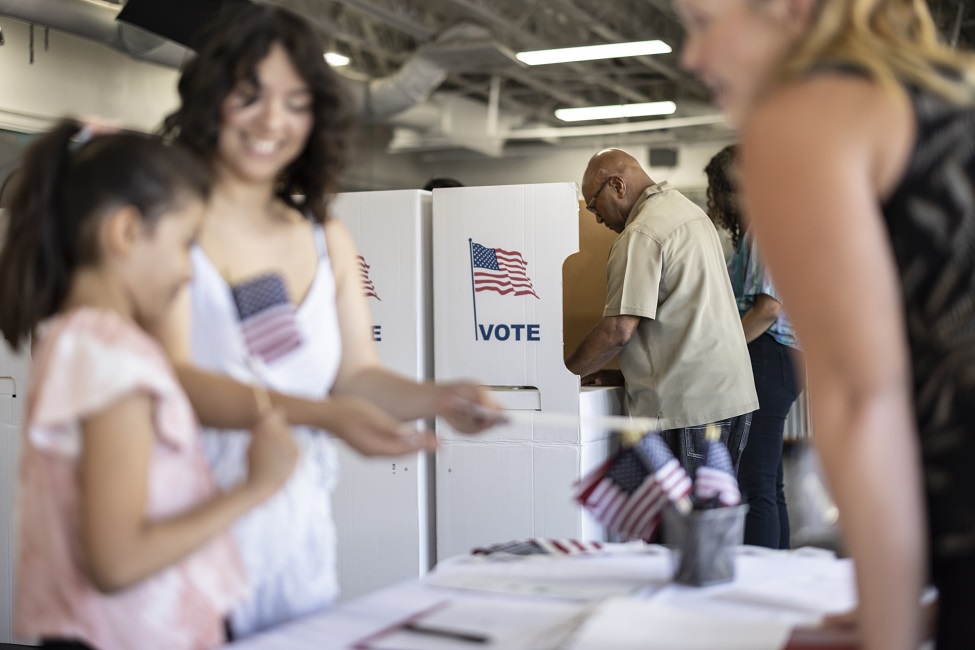Political Apathy Spreads from Parents to Adolescent Children

Study findings point to a promising new avenue of raising political participation among young voters: targeting the political attitudes of those with whom they are close, particularly their parents.
Political apathy is growing in democracies around the world. Political apathy, also known as political alienation, describes feelings of separation and disaffection, a sense of powerlessness and an indifference to politics and political institutions. A hallmark of political alienation is a refusal to vote or participate in political activities. Adolescents and young adults are no exception to these trends. In many countries in Europe and North America, the youngest voters have the lowest participation rates.
Why are new voters so apathetic about politics? Many factors are at play. However, a new study from researchers at Florida Atlantic University focused on one of the most salient: parent attitudes about politics.
The study, published in the Journal of Family Psychology , indicates that political disaffection spreads from parents to children. Specifically, parent political alienation predicted subsequent increases in adolescent child political alienation one year later for youth who described relationships with parents as warm, but not for those who described relationships with parents as distant.
Put simply, in households where parents and adolescents are close, parents transmit political apathy to their adolescent children, which may have the unfortunate consequence of contributing to low political participation among young voters.
In this study, 571 German adolescents (314 girls, 257 boys), along with their mothers and their fathers, each completed questionnaires describing their own political alienation at two time points, approximately one year apart. In addition, adolescents completed questionnaires describing their perceptions of warmth in relationships with parents. Adolescents were in grades six, eight and 10 at the outset.
Mothers and fathers did not differ in terms of influence. Both were equally important in shaping adolescent attitudes about politics. Influence was a one-way street: adolescents did not contribute to the political alienation of either parent.
The findings from this new study are important because they point to a potentially promising new avenue of raising political participation among young voters: targeting the political attitudes of those with whom they are close, particularly their parents.
“The logic is straightforward,” said Brett Laursen, Ph.D., senior author and a psychology professor in FAU’s Charles E. Schmidt College of Science. “Children who are close to their parents are more likely to identify with them and are more receptive to messages from them about politics. We listen to those we like, we engage them in dialogue, we identify with them and we emulate their behaviors.”
Political alienation reflects distrust and a lack of confidence in political systems and political figures. Political disaffection can be challenging for democracies as politically alienated citizens tend not to vote. When elections are decided by a small portion of the electorate, disaffection grows, which can further drive down turnout in a vicious cycle. It is difficult to change attitudes about politics. Many politically disaffected young adults continue to refrain from voting and political participation as they get older.
Findings from this study also are a reminder that parent influence is a double-edged sword.
“The results of our study matter because despite the rising importance of friends and peers, many forms of adolescent behavior remain highly susceptible to parent influence,” said Laursen. “We like to think of parents as positive socialization agents, and typically they are. But bad habits and bad attitudes also can spread from parents to children, and parents should be alert to this possibility. Some parents underestimate their importance. Children are watching and listening, even during late adolescence. They take cues from parents, particularly in families that are close-knit and warm. Attitudes toward politics are just another example of the many ways that parents exert a profound and lasting impact on the lives of their children.”
-FAU-
Latest Research
- FAU CARD Releases Free Water Safety Guide for Children with AutismDrowning is the top cause of unintentional death for children aged 1 to 4 in Florida, and autism increases the risk. FAU's CARD is offering a free guide to help protect children with autism from drowning.
- Fewer Parasites in Indian River Lagoon Signal Big Ecosystem ProblemsFAU Harbor Branch researchers used parasite data to assess the ecological health of Florida's Indian River Lagoon, which has suffered from pollution and algal blooms, damaging habitats like seagrass beds.
- BEPI Poll: Hispanic Economic Outlook Drops Amid Tariffs, Rising PricesAs households face increasing prices for goods and talk of new tariffs, Hispanic optimism in the economy waned in the first quarter of 2025, according to a poll from BEPI at Florida Atlantic University.
- FAU Joins First Global Effort to Map Microplastics in Ocean SystemsAn FAU researcher joins an international team of scientists who have moved beyond "scratching the ocean's surface," marking a turning point in understanding microplastics' path through critical ocean systems.
- FAU CA-AI Lands $2.1M to Form New U.S. Air Force Center of ExcellenceTo address critical U.S. Air Force communications needs, FAU engineering's CA-AI has received a $2.1 million grant from the U.S. Department of Defense Air Force Research Laboratory.
- Nursing 2025: No Relief as Burnout, Stress and Staffing Woes PersistA new national survey from Cross Country and FAU of 2,600 nurses and nursing students paints a sobering picture of a profession at a breaking point and an urgent call to action.






